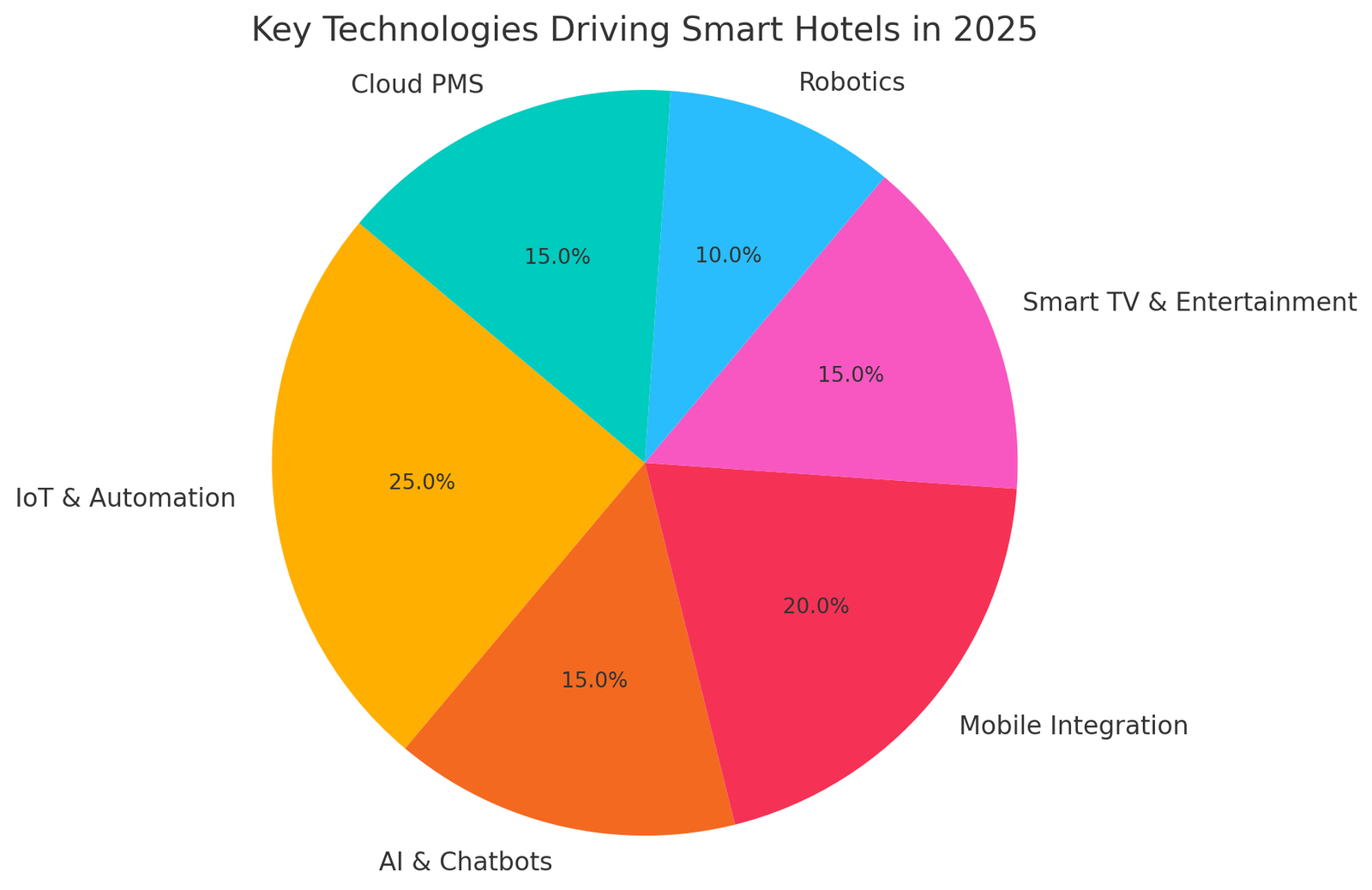This in-depth guide explores the rise of smart hotels, the key technologies driving the change, and why the hospitality industry is shifting toward full-scale digital transformation. Hoteliers will gain insights into the benefits, practical implementations, and strategic importance of adopting smart hotel solutions in 2025.
The hospitality industry is undergoing a radical transformation. Guests no longer measure luxury by thread count or lobby size — they want hyper-personalized, efficient, and seamless experiences from check-in to check-out. This evolution is powered by smart hotel technologies that use data, connectivity, and automation to reimagine every aspect of the guest journey.
A smart hotel leverages connected devices, artificial intelligence, and automation systems to improve guest experience, optimize operations, and reduce costs. From voice-controlled lighting in rooms to AI-driven concierge services, every touchpoint is designed to be intuitive and data-enhanced.
Millennials and Gen Z travelers — now dominating the market — expect digital-first solutions. From mobile check-ins to streaming their own content in-room, these guests favor hotels that mirror their connected lifestyles.
Smart hotels reduce human error, automate repetitive tasks, and streamline communication between departments. This leads to fewer bottlenecks, faster service, and better use of staff resources.
Hotels that adopt smart technology stand out in a crowded market. Digitally enhanced services are no longer a premium perk — they’re a requirement to stay relevant.
To understand why smart hotels are becoming the new standard, it’s crucial to explore the technologies making this shift possible.

| Technology | Description | Use Case |
|---|---|---|
| IoT & Automation | Device interconnectivity for real-time control and response | Smart lighting, energy savings |
| AI & Chatbots | Virtual agents for guest interaction and task automation | 24/7 concierge, reservations |
| Mobile Integration | Mobile-first systems for service access | Mobile check-in/out, room controls |
| Smart TV Systems | Entertainment and casting solutions | Netflix streaming, room personalization |
| Robotics | Autonomous service delivery | Room service, luggage handling |
| Cloud PMS | Centralized management systems | Booking, guest data, housekeeping |
Guests can set preferred temperatures, lighting scenes, or even pre-load TV content before arriving.
Digital check-in/out, keyless entry, mobile ordering, and app-based support make the stay frictionless.
Digital signage, mobile apps, and smart voice assistants provide instant answers and guidance.
| Benefit | Impact |
|---|---|
| Lower Operational Costs | Reduced labor and energy expenses |
| Data-Driven Decisions | Insights from usage patterns and guest preferences |
| Increased Guest Retention | More memorable, convenient stays |
| Higher Revenue Per Room | Upselling via personalized suggestions |
| Sustainability Compliance | Smart energy management, waste reduction |
| Phase | Description | Timeframe |
|---|---|---|
| Assessment | Audit current systems, guest expectations | 1–2 weeks |
| Vendor Selection | Choose integrated tech solutions | 2–4 weeks |
| Pilot Deployment | Launch in selected rooms or departments | 4–6 weeks |
| Full Integration | Expand property-wide implementation | 2–4 months |
| Optimization | Review data, tweak systems, train staff | Ongoing |
| Feature | Traditional Hotel | Smart Hotel |
|---|---|---|
| Check-in Process | Manual front desk | Mobile / Kiosk-based |
| Room Access | Keycards | Mobile or biometric access |
| Room Control | Manual switches | Voice/app-controlled |
| Entertainment | Limited cable TV | Streaming, casting, smart TV |
| Service Requests | Phone calls to reception | App-based or AI chatbot |
| Energy Usage | Continuous consumption | Sensor-based, adaptive |
Clarify what you want to improve — guest experience, operations, or revenue — and set KPIs.
Ensure your property has the bandwidth, cabling, and Wi-Fi coverage to support smart devices.
Invest in platforms that integrate with your PMS, CRM, and existing hardware.
Technology is only as effective as the people using it. Offer hands-on training and establish protocols.
Monitor guest satisfaction and usage data to refine and expand your digital ecosystem.
The market for smart hotel solutions is expected to grow exponentially. According to industry research, the global smart hospitality market is projected to exceed $49 billion by 2027, driven by increasing demand for automation and hyper-personalization.
Emerging trends include: